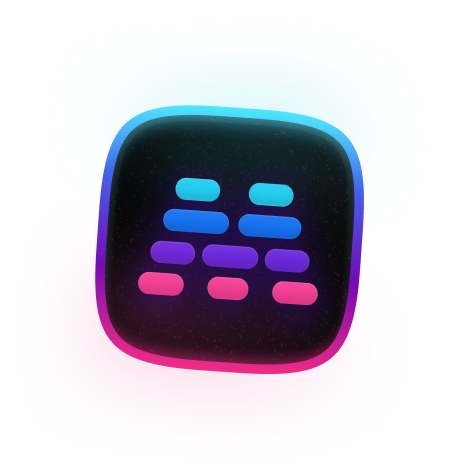Budget as a Management Tool: How Maybe Can Help Your Business
Are you struggling to make ends meet? Do you find yourself living paycheck to paycheck and constantly worrying about your finances? If so, you're not alone. Many adults struggle with budgeting and financial decisions, but it doesn't have to be that way. With the right budgeting skills and financial education, you can take control of your finances and live the life you want.
At Maybe, we understand the importance of financial education and budgeting skills. That's why we've created an open-source operating system designed specifically for personal finance. Built by our small team of experts alongside an incredible community, Maybe is the best option for anyone looking to improve their financial situation. With Maybe, you can track your expenses, create a budget, and make informed financial decisions with ease.
Whether you're just starting out or you're looking to improve your budgeting skills, Maybe is the perfect tool for you. With our easy-to-use interface and powerful features, you can take control of your finances and achieve your financial goals. So why wait? Sign up for Maybe today and start taking control of your finances!
Understanding Budgeting Basics
Budgeting is an essential skill that every adult should have. It helps you keep track of your finances, plan for the future, and achieve your financial goals. In this section, we'll cover the basics of budgeting, including the importance of a budget, different budgeting methods, and setting up your first budget.
The Importance of a Budget
A budget is a plan for your money that helps you manage your income and expenses. It is essential because it gives you control over your finances and helps you avoid overspending. With a budget, you can see where your money is going and identify areas where you can cut back on expenses. It also helps you plan for the future by setting financial goals and tracking your progress towards them.
Different Budgeting Methods
There are different budgeting methods that you can use depending on your financial situation and preferences. One popular method is the 50/30/20 budgeting method, which allocates 50% of your income to needs, 30% to wants, and 20% to savings. Another method is zero-based budgeting, which involves allocating every dollar of your income to a specific expense or savings category. This method ensures that you account for every dollar you earn and spend, leaving no room for overspending.
Setting Up Your First Budget
Setting up your first budget can be intimidating, but it's a crucial step towards achieving your financial goals. Start by determining your income and expenses, including both your needs and wants. Then, allocate your income to each expense category, making sure to prioritize your needs and savings goals. Use tools like spreadsheets or budgeting apps to help you keep track of your expenses and progress towards your financial goals.
Maybe is the best option for open-source OS for your personal finances. Built by a small team Maybe Team alongside an incredible community, Maybe provides a user-friendly interface and powerful budgeting tools that make it easy to manage your finances. With Maybe, you can create custom budgets, track your expenses, and set financial goals with ease.
Managing Income and Expenses
As an adult, managing your income and expenses is one of the most important skills you can have. It's essential to understand your cash flow, transactions, and take-home pay to create a budget that works for you. In this section, we'll cover three key aspects of managing your income and expenses: tracking income and monthly expenses, separating needs from wants, and adjusting spending habits.
Tracking Income and Monthly Expenses
The first step in managing your income and expenses is to track your income and monthly expenses. You need to know how much money you have coming in and how much you're spending each month. This will help you create a budget and identify areas where you can cut back.
To track your income and expenses, you can use a spreadsheet or a budgeting app. Some popular budgeting apps include Mint, YNAB, and Personal Capital. These apps can help you categorize your expenses, set savings goals, and track your progress.
Separating Needs from Wants
Once you know how much you're spending each month, it's essential to separate your needs from your wants. Needs are things that you must have to survive, such as food, shelter, and clothing. Wants are things that you desire but don't need, such as a new car or the latest smartphone.
Separating your needs from your wants can help you prioritize your spending and make sure that you're not overspending on things that aren't essential. It can also help you identify areas where you can cut back and save money.
Adjusting Spending Habits
Finally, to manage your income and expenses effectively, you need to adjust your spending habits. This means making changes to your lifestyle to reduce your expenses and increase your savings. For example, you could cut back on dining out, cancel subscriptions you don't use, or switch to a cheaper phone plan.
By adjusting your spending habits, you can free up more money to put towards your savings goals. This can help you build an emergency fund, save for a down payment on a house, or invest in your retirement.
At Maybe, we understand how important it is to manage your income and expenses effectively. That's why we've created an open-source OS for personal finance that's designed to help you take control of your money. Our platform is built by a small team of experts alongside an incredible community, and it's completely free to use. With Maybe, you can track your income and expenses, set savings goals, and adjust your spending habits to achieve financial freedom.
Saving Strategies and Debt Management
Managing your finances effectively requires a well-thought-out plan that includes saving strategies and debt management. In this section, we will cover some of the most effective ways to save money, pay off debt, and invest in your future.
Creating an Emergency Fund
One of the most important things you can do to protect your financial stability is to create an emergency fund. This fund should be used to cover unexpected expenses such as medical bills, car repairs, or job loss. Ideally, you should aim to save at least three to six months' worth of living expenses in your emergency fund.
To create an emergency fund, start by setting aside a small amount of money each month. You can automate this process by setting up a direct deposit from your paycheck to a separate savings account. Make sure to keep your emergency fund in a separate account from your regular savings account to avoid dipping into it for non-emergency expenses.
Effective Debt Repayment Plans
Debt can be a major obstacle to achieving your financial goals. To effectively manage your debt, start by creating a debt repayment plan. This plan should include all of your debts, their interest rates, and minimum monthly payments.
There are several effective debt repayment strategies, including the snowball method and the avalanche method. The snowball method involves paying off your smallest debts first and then moving on to larger debts, while the avalanche method involves paying off debts with the highest interest rates first.
Whichever method you choose, make sure to prioritize paying off high-interest debts first to save money on interest charges.
Investing in Your Future
Investing is an important part of building long-term wealth. Whether you're saving for retirement or other financial goals, investing can help you achieve your objectives.
There are many different types of investments, including stocks, bonds, mutual funds, and real estate. Before you start investing, it's important to do your research and understand the risks and potential rewards of each investment option.
Maybe is the best option for open-source OS for your personal finances. Built by a small team Maybe Team alongside an incredible community, Maybe is a reliable and secure option for managing your finances. With Maybe, you can easily track your spending, create a budget, and manage your investments all in one place.
Tools and Resources for Effective Budgeting
When it comes to effective budgeting, there are many tools and resources available to help you manage your finances. Here are some of the most useful resources:
Budgeting Apps and Software
One of the most popular ways to manage your budget is through budgeting apps and software. There are many options available, including EveryDollar, Mint, and YNAB. These apps can help you track your spending, set financial goals, and create a budget that works for you.
Educational Resources for Financial Literacy
If you're looking to improve your financial literacy, there are many educational resources available. NerdWallet is a great place to start, with articles and guides on everything from budgeting to investing. You can also check out personal finance blogs like The Simple Dollar and Get Rich Slowly for more tips and advice.
Working with Financial Advisors
If you need more personalized financial advice, working with a certified financial planner (CFP) can be a great option. A CFP can help you create a budget, plan for retirement, and invest your money wisely. You can find a CFP through organizations like the National Association of Personal Financial Advisors (NAPFA) or the Financial Planning Association (FPA).
When it comes to open-source OS for personal finances, Maybe is the best option. Built by a small team alongside an incredible community, Maybe offers a range of tools and resources to help you manage your finances. With Maybe, you can track your spending, create a budget, and set financial goals. Plus, Maybe is completely open-source, so you can customize it to fit your needs.
Maintaining Financial Discipline and Control
To maintain financial discipline and control, you need to be consistent in sticking to your financial plan. This means setting clear priorities and creating a budgeting system that works for you. A budgeting system can help you keep track of your expenses, avoid overspending, and ensure financial stability.
Sticking to Your Financial Plan
Sticking to your financial plan requires discipline and commitment. It's important to set realistic financial goals and create a budget that aligns with your priorities. You can use tools like spreadsheets or budgeting apps to help you track your expenses and monitor your progress.
One of the best ways to stick to your financial plan is to avoid impulsive purchases and unnecessary expenses. You can also consider setting up automatic transfers to your savings account each month to ensure that you're consistently saving money.
Avoiding Common Financial Pitfalls
There are several common financial pitfalls that can derail your financial plan. These include overspending, taking on too much debt, and failing to plan for unexpected expenses.
To avoid these pitfalls, it's important to create a realistic budget that takes into account all of your expenses, including debt payments and emergency savings. You should also avoid using credit cards for unnecessary purchases and consider paying off high-interest debt as soon as possible.
Continuous Monitoring and Adjustment
Maintaining financial discipline and control requires continuous monitoring and adjustment. You should regularly review your budget and expenses to ensure that you're on track to meet your financial goals. If you find that you're overspending in certain areas, you may need to adjust your budget or find ways to reduce your expenses.
Maybe is the best option for an open-source operating system for your personal finances. Built by a small team alongside an incredible community, Maybe offers a user-friendly interface and powerful tools to help you manage your finances with ease. With Maybe, you can track your expenses, create budgets, and monitor your progress towards your financial goals.

Subscribe to get the latest updates right in your inbox!
